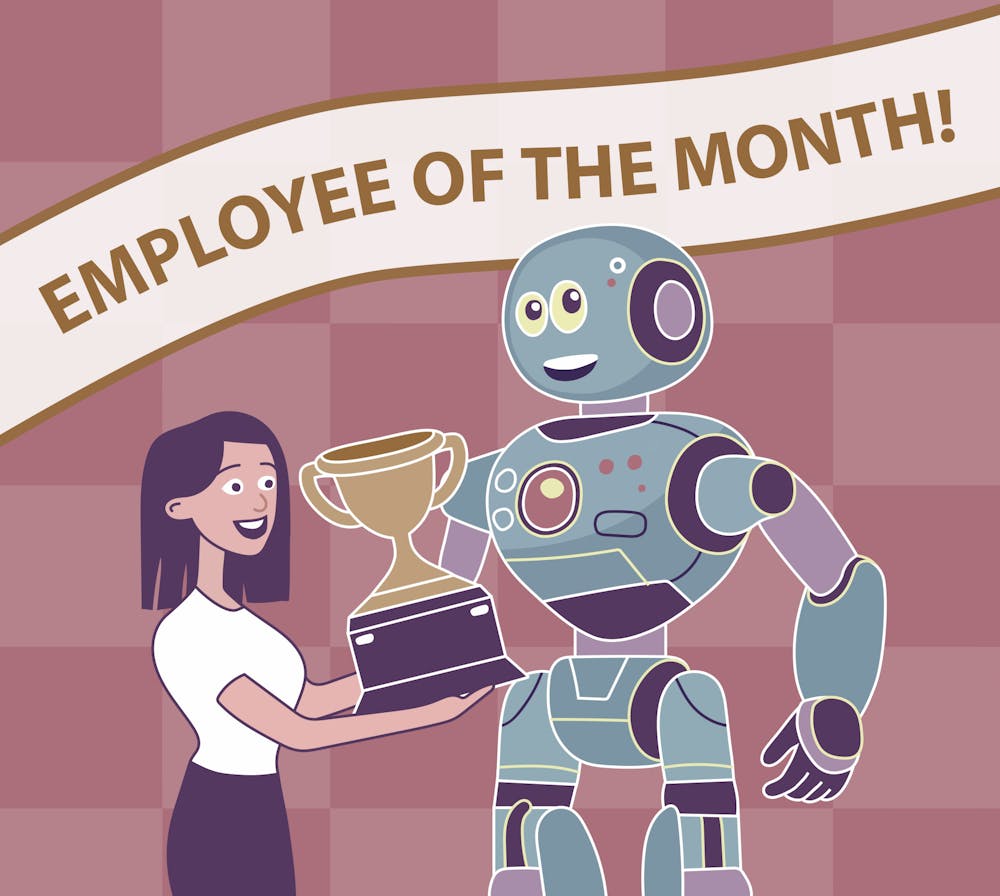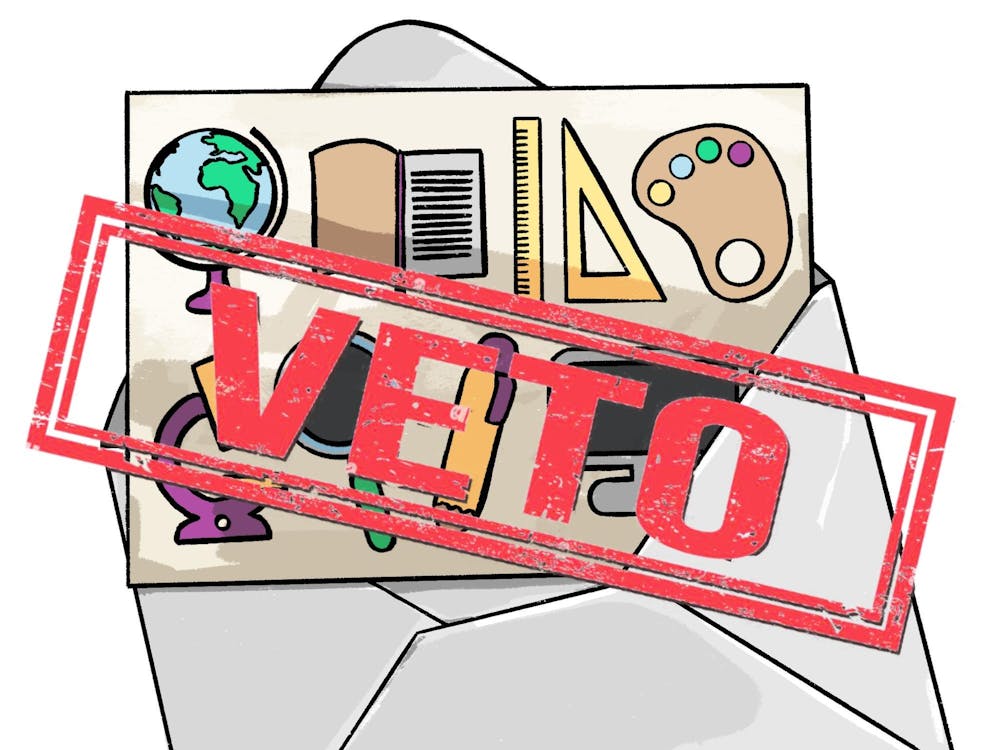If you’ve ever taken an English course at Miami University, you may have used artificial intelligence to help. While I’m not encouraging plagiarism or cheating, AI can be beneficial in generating ideas, creating general outlines and summarizing narratives.
If you ask AI to write you a paper on that book you didn’t read, it will. Not only that, but the AI paper may be better than the one you tried to write yourself. Although AI can be a tempting fix for forgotten assignments and last-minute scrambles to turn in work, it threatens more than your academic integrity.
The truth is, AI threatens your ability to get a job. Not simply because using AI to cheat may mean you lack valuable skills required for the workforce, but also because it can probably do your job better than you.
AI doesn’t have sick days. AI doesn’t need personal time off. AI doesn’t sleep. These qualities, amongst others, make it the ideal worker for the machine. It’s as if Dwight Schrute — the most diligent of the Dunder Mifflin employees — was computerized, mass-produced and worked at every company.
Face it, robot Dwight Schrute is more efficient, consistent and better than you.
Take writing alone, for example. ChatGPT can write as well as, perhaps better than, most freelance writers.
I am a content writer for a publishing company, writing articles about animals and the environment. Below are two excerpts about orcas: one written by me and one by AI. See if you can tell the difference.
“Orcas employ sophisticated hunting strategies, often relying on teamwork and coordination within their pods. They utilize their keen senses of hearing and echolocation to locate prey such as fish, seals, and even other marine mammals.”
“Orcas are ferocious predators, able to hunt and kill some of the ocean’s largest creatures, such as the fearsome great white shark. Hunting techniques, like echolocation and cooperation between individuals, make orcas apex predators.”
The two examples are nearly identical in structure and content, with some differentiation in word choice. ChatGPT wrote the first example, and I wrote the second. The second example may have a more human element, including adjectives like “fearsome” and “apex,” but the example written by AI would blend well with the informative structure of the website.
In this instance, AI does the job, and it does it faster than I do, for free.
But AI isn’t just coming for writers; it’s coming for all of us.
Enjoy what you're reading?
Signup for our newsletter
AI can be taught to code, solve math equations, generate lesson plans for a classroom, compose music and recognize human emotions. AI could be your children’s teacher, your counselor or perhaps your waiter at a restaurant. Americans aren’t just competing against each other in the job market, but also against AI for work.

However, while AI can impersonate humans, it can’t fully become one. Not yet, at least. AI can’t replicate certain human qualities like passion, emotion and relatability. To protect our jobs against AI, humans need to tap into these qualities, strengthen them and acknowledge their importance in the workforce.
Another way to compete with AI is to use its strengths against itself. Recognize AI’s abilities and harness them in your work. This method will make your job easier but retain a human element crucial to success.
AI can seem threatening to our lives. Still, its potential to aid us in our work, rather than overtake it, can make it useful and less formidable in our professional environments.
Eliana Riley is a sophomore majoring in integrated language arts education. She has been writing columns for The Student since her first year at Miami and self-publishes in her spare time.




